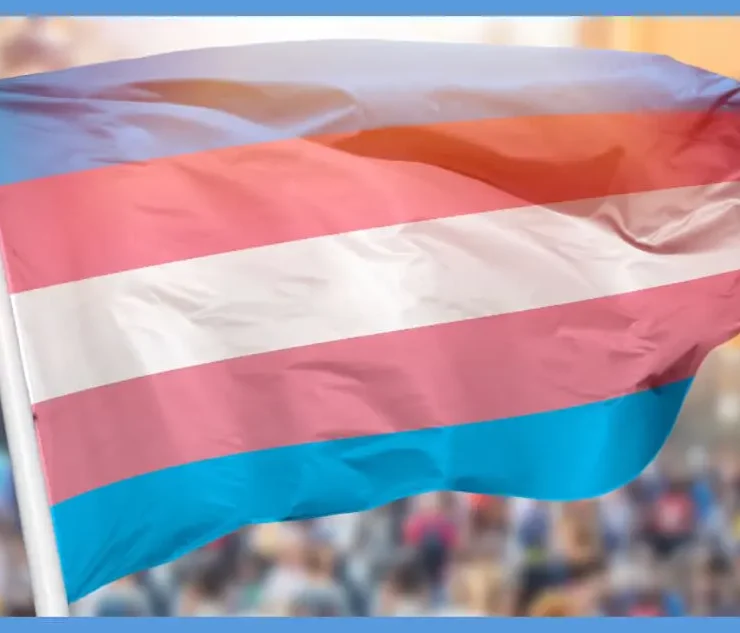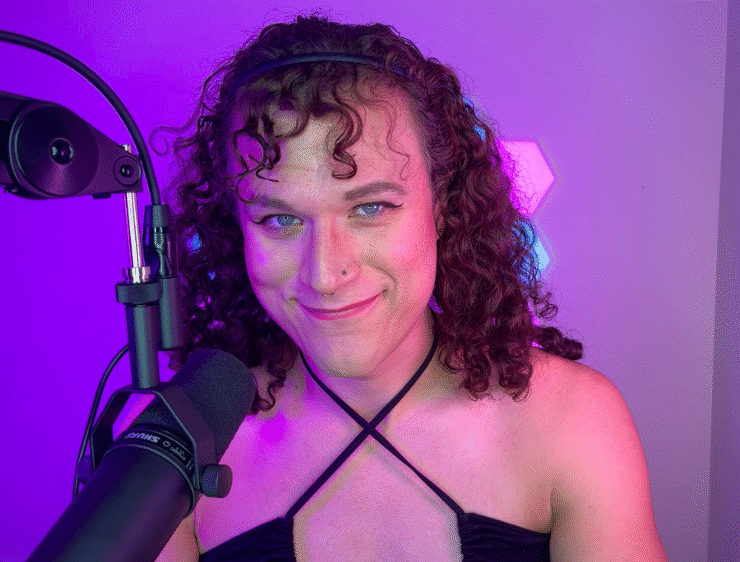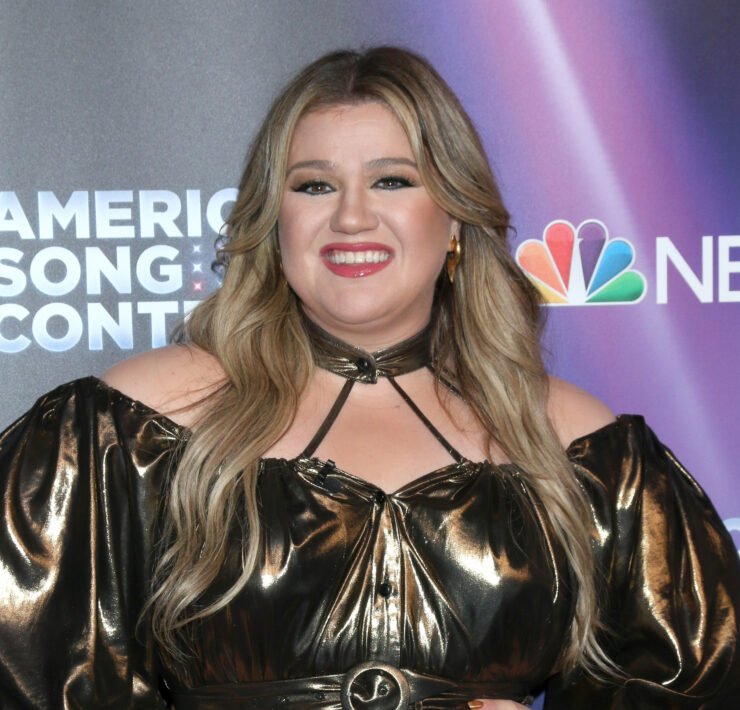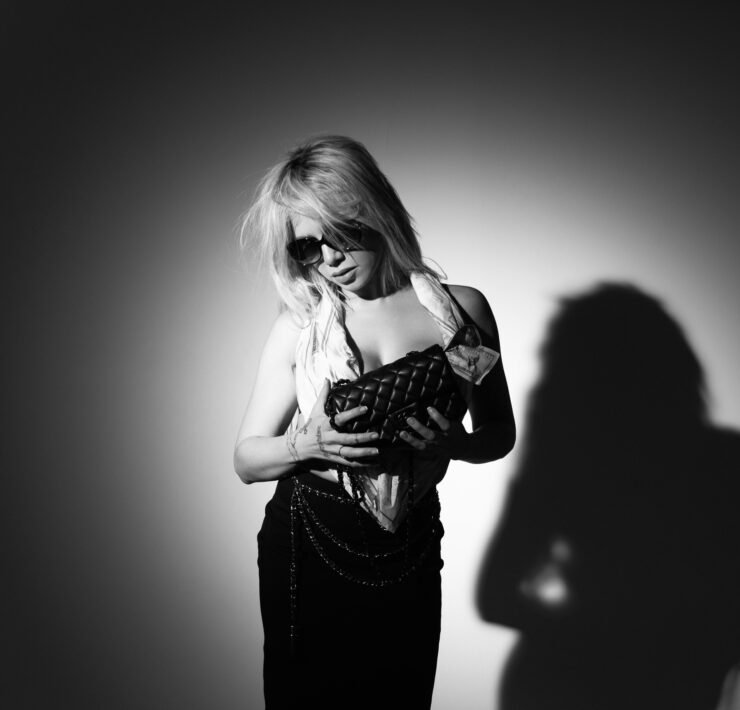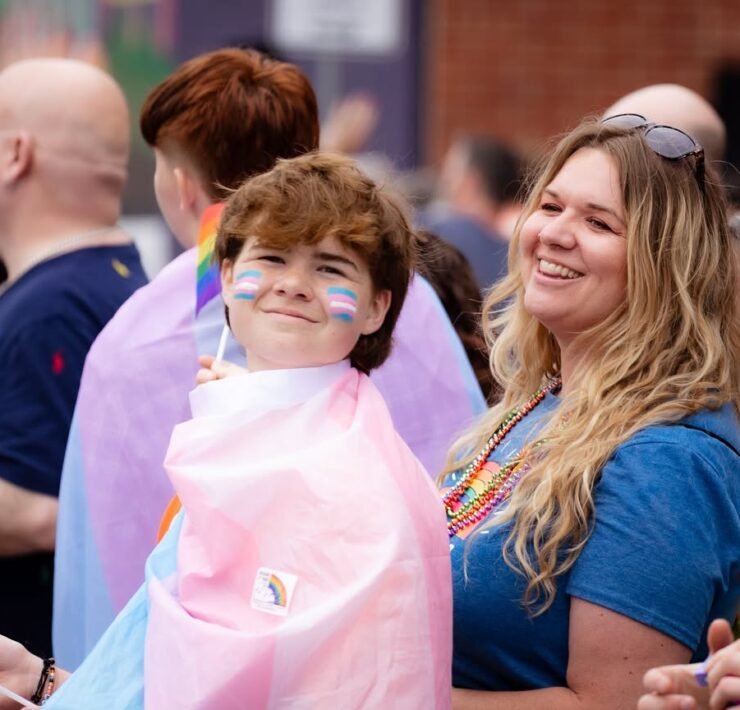Counselor Will Mills on the Importance of Body Positivity in Men

Denny Patterson is a St. Louis-based entertainment and lifestyle journalist…
The body positivity movement in its current form began to emerge around 2012, initially focusing on challenging unrealistic feminine beauty standards. As the movement grew in popularity, the original focus on acceptance of weight began to shift toward a message that “all bodies are beautiful.”
While this is most certainly the case, body positivity is still primarily geared toward women. Men are often excluded from the narrative, which is unfortunate because men can struggle just as hard as women to feel at home in their bodies. Nobody knows that better than licensed professional counselor (LPC) and body-positive content creator Will Mills.
Based in New Jersey, Mills originally wanted to pursue a career in theater and performing. Due to life circumstances, his path led him to mental health and counseling.
“Most of us who pursue this kind of work did not necessarily grow up with perfectly charmed lives,” he explains. “This is kind of a common theme with therapists. A lot of us go into the idea that we’re going to learn how to heal ourselves by getting an education in psychology or something related. My intention was to understand myself and the things that happened to me, and I’ve also always had a passion for helping others.”
Currently, Mills works overnight taking crisis calls and helps people get into detox, rehab, residential treatment programs, and inpatient programs, as well as providing immediate support. He works with community mental health and primarily helps people dealing with intellectual and developmental disabilities and mental illness.
Because he specializes in several different areas, this is what led Mills to work for himself and start up a coaching business called Mental Wealth Coaching with fellow body-positive creators, Dr. Katelyn Baker (@thatfatdoctor) and Taylor Masters (@truly_tay).
“I want to be accessible to people everywhere throughout the world,” Mills says. “We launched last year, and it’s been great. I never thought of myself as a business owner or a private practice outpatient person. It’s not therapy, but it’s very similar and has this virtual component. We are all therapists operating under the umbrella term of life coach to help people within those parameters. Personally, I specialize in ADHD coaching, anxiety, parents of neurotypical and autistic children, and I do men’s coaching where we unpack toxic masculinity and diet culture, especially in the LGBTQ world.”
As a content creator, Mills chooses to use his position to encourage people to care for their mental health and to spread a message of body acceptance coming from a somewhat unexpected source: a mid-size mental health professional who happens to be a man.
He initially thought he was too old to join TikTok but soon changed his mind after his friend Megan kept sending him videos.
“Funny enough, one of the first videos I saw from a mental health professional was one of Katelyn’s,” Mills says. “She is a gem of a human being, and she and Megan inspired me to make videos. Then they said I should inject more of myself into my content because my early videos are very dry. They don’t show my personality at all. Everyone has that fear of being dragged online or being shamed publicly, but they were like, ‘You’re on a computer screen. What’s the worst that’s going to happen?’ That’s a fair point.”
 After making some slight changes, Mills quickly gained popularity on the social media platform. In addition to a positive message, his love of crop tops has become another staple of his videos.
After making some slight changes, Mills quickly gained popularity on the social media platform. In addition to a positive message, his love of crop tops has become another staple of his videos.
“It’s very normal for women to wear crop tops, but I was like, that looks so comfortable,” he states. “As a therapist, comfort items and being comfortable are so important. Clothing is a big part of that, especially when you’re trying to be more body-accepting and positive. Sometimes, we don’t want to leave the house because we feel like we don’t have something to wear, and it’s because we sometimes just don’t have clothes that fit us because we’re still trying to be someone that we’re not, and we aren’t appreciating our current selves. I wanted to do something that looked comfortable. I’ve never worn a crop top before, let me try it.”
When Mills first wore one for a video, he was surprised by the response.
“I was like, ‘People aren’t being mean to me?’” he laughs. “I have been bullied since conception, so it was weird for people to be like ‘yas’ and reacting in the way they did. I was very confused at first because they were acting the same way I have reacted to other creators. For it to happen to me, like, is this real? Of course, anxiety then sets in, imposter syndrome, and you think people are just being nice, but no. This is helpful. This is impactful. Then I gained the confidence to wear them outside of my house. Don’t get me wrong, I’m not wearing crop tops to go grocery shopping in 40-degree weather—That’s just not a great life choice.”
By being vulnerable and putting himself out there, Mills has learned to embrace himself a lot more, rather than hating himself for his insecurities.
As a member of the queer community, Mills has noticed some patterns of body negativity that can be perpetuated in LGBTQ spaces, and he hopes to see that change.
“There is a lacking and not a lot of discussion about body positivity in queer spaces towards male identified or male adjacent,” he says. “It is mostly female-driven. I think I follow maybe three men who do body positivity, and they’re all mid-sized. They’re like me or smaller. There’s just not a lot of males out there advocating or showing this kind of thing, and that lends into the narrative that men are overly confident, which is true in some cases, but there are a lot of men who have eating disorders and do not feel desirable in these queer spaces.”
At the end of the day, Mills sees that the positives outweigh the negatives, and he is happy to be a part of the change and help people fight against stigma.
“I wasn’t necessarily going to go out and be super body positive, but Katelyn kind of inspired a lot of that,” he says. “The connections I made on TikTok have helped me grow as a person, which has also helped my content grow. It’s important for people to see mental health professionals, and I would love to continue to grow and inspire more people. They need to realize that their relationship with themselves is the most important.”
Stay up-to-date and connect with Mills by following him on Instagram @counselor.will, TikTok @counselorwill, or visit mentalwealthcoaching.org

Photos Courtesy of Rox Tran and Juliet Klesitz
What's Your Reaction?
Denny Patterson is a St. Louis-based entertainment and lifestyle journalist who serves as OFM's Celebrity Correspondent. Outside of writing, some of his interests include traveling, binge watching TV shows and movies, reading (books and people!), and spending time with his husband and pets. Denny is also the Senior Lifestyle Writer for South Florida's OutClique Magazine and a contributing writer for Instinct Magazine. Connect with him on Instagram: @dennyp777.



